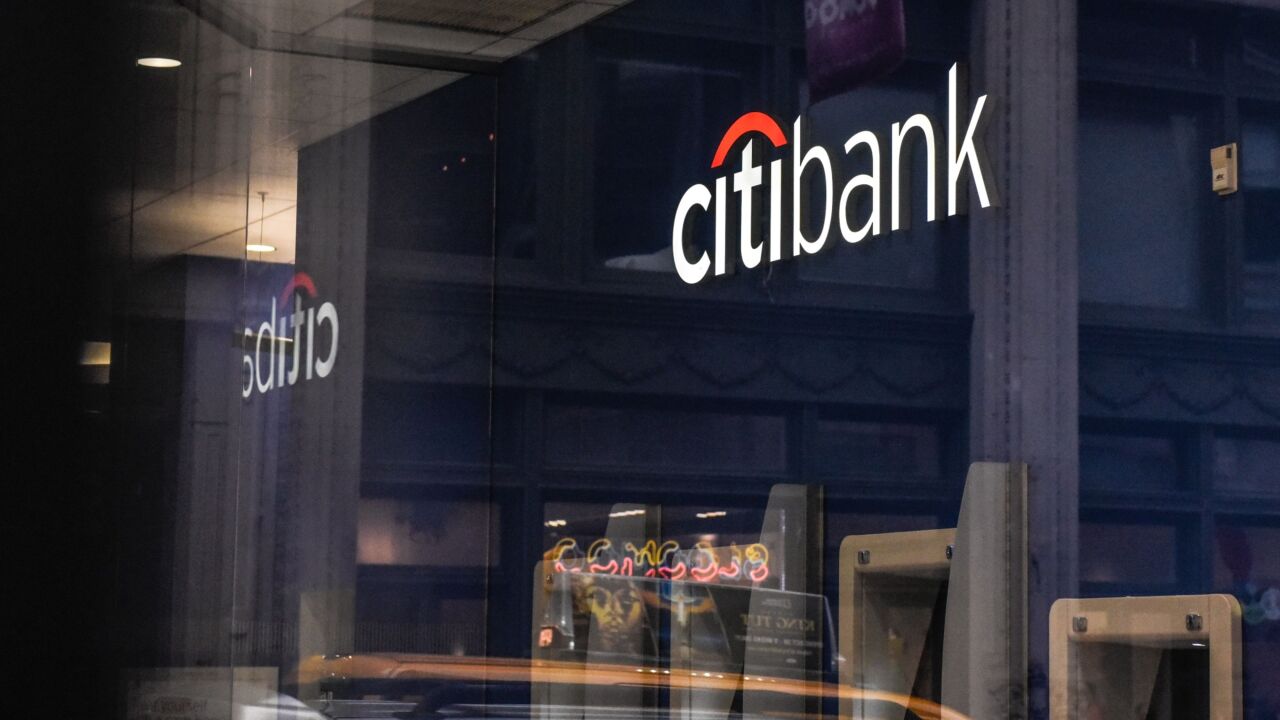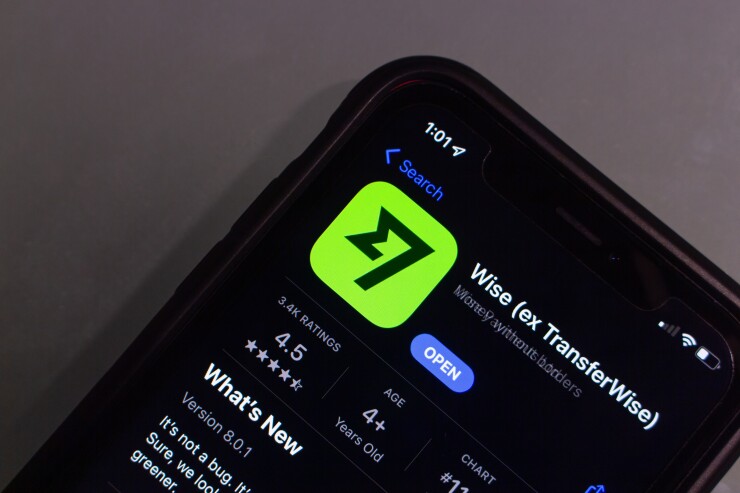
The
"There's nothing here that concerns us from that perspective," said Martin Adams, director of investor relations for Wise, in an interview after the company released its first half earnings for 2024. "The U.S. is a focus for our business but we are geographically diversified and are very well spread out," Adams said.
President Trump's tariffs on certain goods from China and other countries sparked a trade war that hindered payments volume for some fintechs with cross-border products. As a 2024 candidate, he promised to issue broader tariffs of up to 20% in a future administration. That could boost yearly costs to U.S. consumers by about $2,600, hurting purchasing power, according to the Peterson Institute for International Economics.
Trump in his first term also threatened to
The firm, which was originally known as TransferWise, reported strong earnings. For the six months ended Sept. 30, Wise reported revenue of about $791 million, up 19% from the October 2023 to March 2024 period. Profits were about $279 million, up 55%. About 11.4 million people and businesses used Wise in the past six months, up 25% year over year.
Wise this week launched its sixth live direct connection to a domestic payments system, adding the Philippines. It has received regulatory approval to integrate with Brazil and Japan. The company also upgraded its internal technology, enabling 63% of its transactions to be completed instantly. "Adding these connections is fundamental to what we're doing to move money around the world at lower costs," Adams said.
In a research note, Peel Hunt said, "Wise's rating is not expensive … and is worth a second look from investors." —John Adams
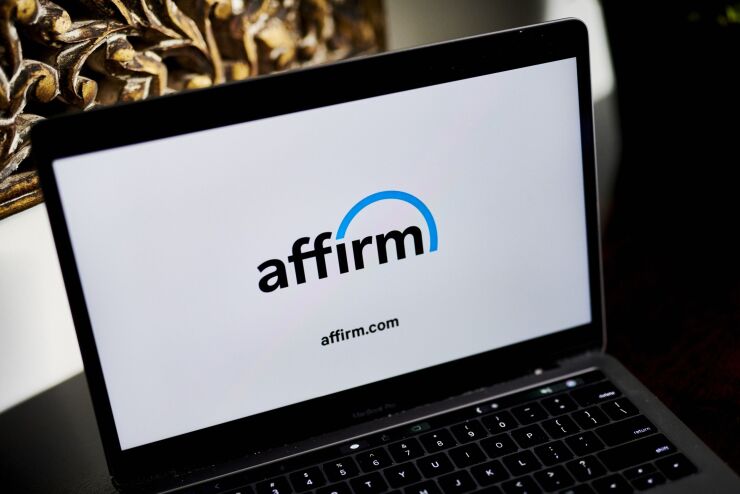
Affirm expands to the United Kingdom
Buy now/pay later company Affirm has introduced its lending products to the United Kingdom.
The company will offer both its interest-free and interest-bearing payment options through flight-booking website Alternative Airlines and payment processing company Fexco, according to Affirm. Fexco clients with a U.K. presence will also be able to integrate Affirm's point-of-sale financing into checkout, a
Ruth Spratt, vice president and country manager, will lead the company's efforts in the U.K. Spratt has more than 25 years of experience in payments, media and travel, and was the U.K. country manager of buy now/pay later firm
The move comes as "U.K. expansion is all the rage with U.S. fintech," said Simon Taylor, head of strategy and content at Sardine, in a
Affirm's launch will compete with rival Klarna, which counts the United Kingdom as one of its largest and most lucrative markets, according to Taylor. —Joey Pizzolato
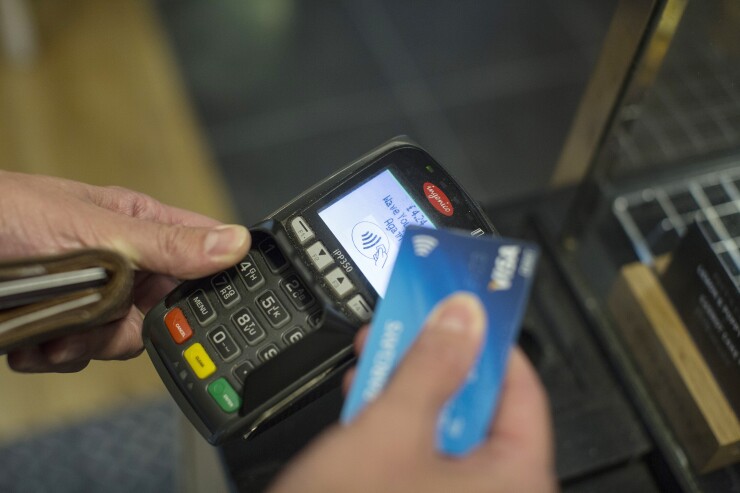
Ingenico revs up crypto payments
Ingenico and Crypto.com have partnered to sell payments and merchant services to the French payment company's clients.
Merchants can accept crypto for payments and exchange it for local currency such as euros, pounds, or Australian or U.S. dollars. Ingenico has added the crypto option to its new merchant wallet, which is attached to Android-enabled Ingenico payment terminals. Crypto will appear alongside other payment options at the point of sale.
Other features include offering payment-related rewards for using Crypto.com Pay at Ingenico merchants.
The partnership is trying to bring more consumers and merchants into cryptocurrency payments. The digital currency has been used primarily for investing and trading, with
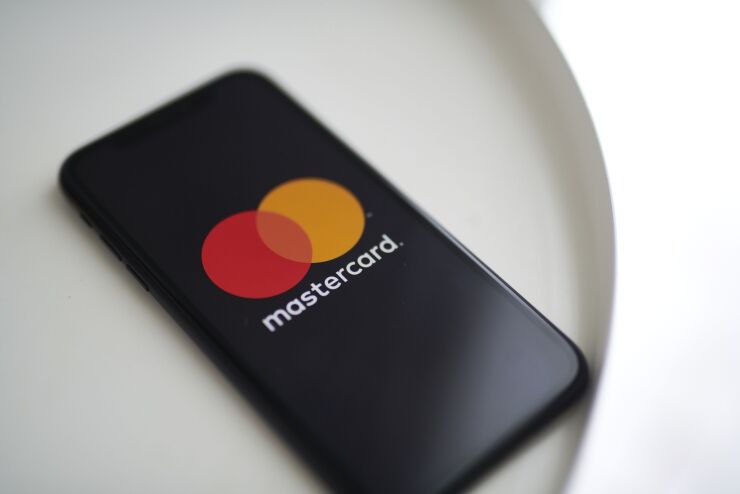
Mastercard makes a play for Asian digital wallets
The card network this week launched Mastercard Pay Local, a service that enables the card network's consumers to link their cards to a local digital wallet, with an initial focus on Asia.
Digital wallets at launch include DANA in Indonesia, Touch n' Go in Malaysia, Bakong in Cambodia and LankaPay in Sri Lanka. The wallets cover a total of 35 million merchants.
The card brand has existing partnerships with digital wallets Alipay and Weixin Pay in China and Octopus in Hong Kong; and digital wallets in other regions. These wallets accept Mastercard for payments, and Pay Local will enable foreign travelers to access the local wallets without having to set up a distinct account.
Mastercard will also recruit partners for Pay Local in markets where digital wallets have a high usage for small everyday payments, such as Latin America, Eastern Europe, the Middle East and Africa, in an attempt to reach traveling consumers who are making routing payments in what is for them a foreign country.
China's

Airwallex looks to secure new funding
Payments fintech Airwallex is eyeing $200 million in a new funding round to
The company, which was founded in Melbourne, Australia, in 2015, is looking to secure fresh funding before year-end, according to
The company has been on a growth trajectory, expanding into China, Japan, Mexico and Brazil, and has been mulling a potential initial public offering in 2026, according to reports. —Joey Pizzolato

Confirmation of Payee hits 99% of transactions through Faster Payments
The United Kingdom's Payment Systems Regulator said last week that its fraud prevention tool, called
Confirmation of Payee verifies the name of an account holder against the payee's bank records to confirm that a payment is going to the intended recipient.
"Fraud is a devastating crime, and as fraudsters become increasingly sophisticated, people continue to lose life-changing amounts of money," said Kate Fitzgerald, head of policy at the Payment Systems Regulator, in an Oct. 31
More than 300 financial institutions use Confirmation of Payee, according to the PSR. —Joey Pizzolato
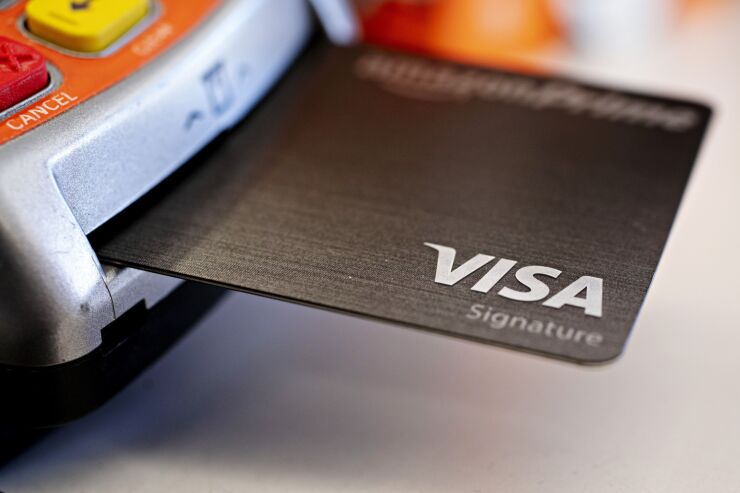
Visa extends digital pay tech in Asia Pacific
Visa has partnered with QR code firms to support international payments in China, Malaysia, Singapore, Taiwan and Vietnam.
Merchants in these countries can use firms that enable contactless QR payments to connect to Visa's payment-processing system.
The program will also enable consumers in these countries to use digital wallets and other payment apps to pay at QR code merchants either in their home markets or abroad.
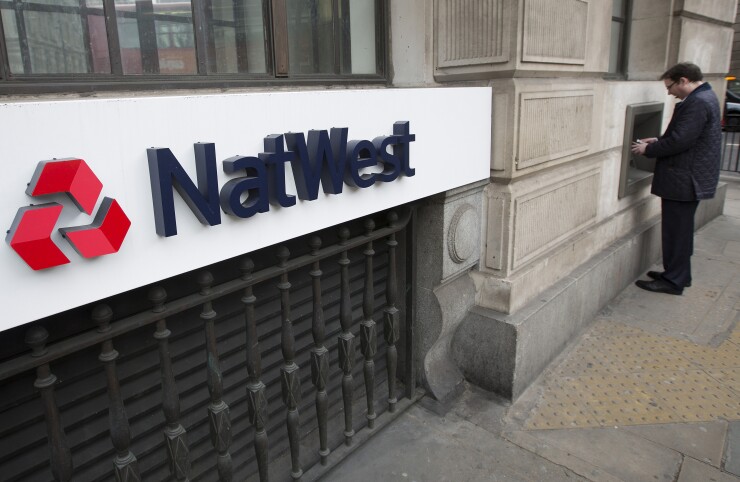
NatWest launches mobile virtual cards for corporations
United Kingdom-based NatWest is leveraging
The virtual cards can be spun up and added to mobile wallets. Businesses can set a budget or time limit and control where employees can use the card through merchant or geographic location controls.
"The introduction of mobile virtual cards represents a step change in the increasingly digitalised corporate payments landscape," said Simon Forbes, president of UK and Ireland at Mastercard, in a statement. "It will simplify, speed up, and bring flexibility to what has long been a cumbersome process for many businesses and their employees." —Joey Pizzolato

